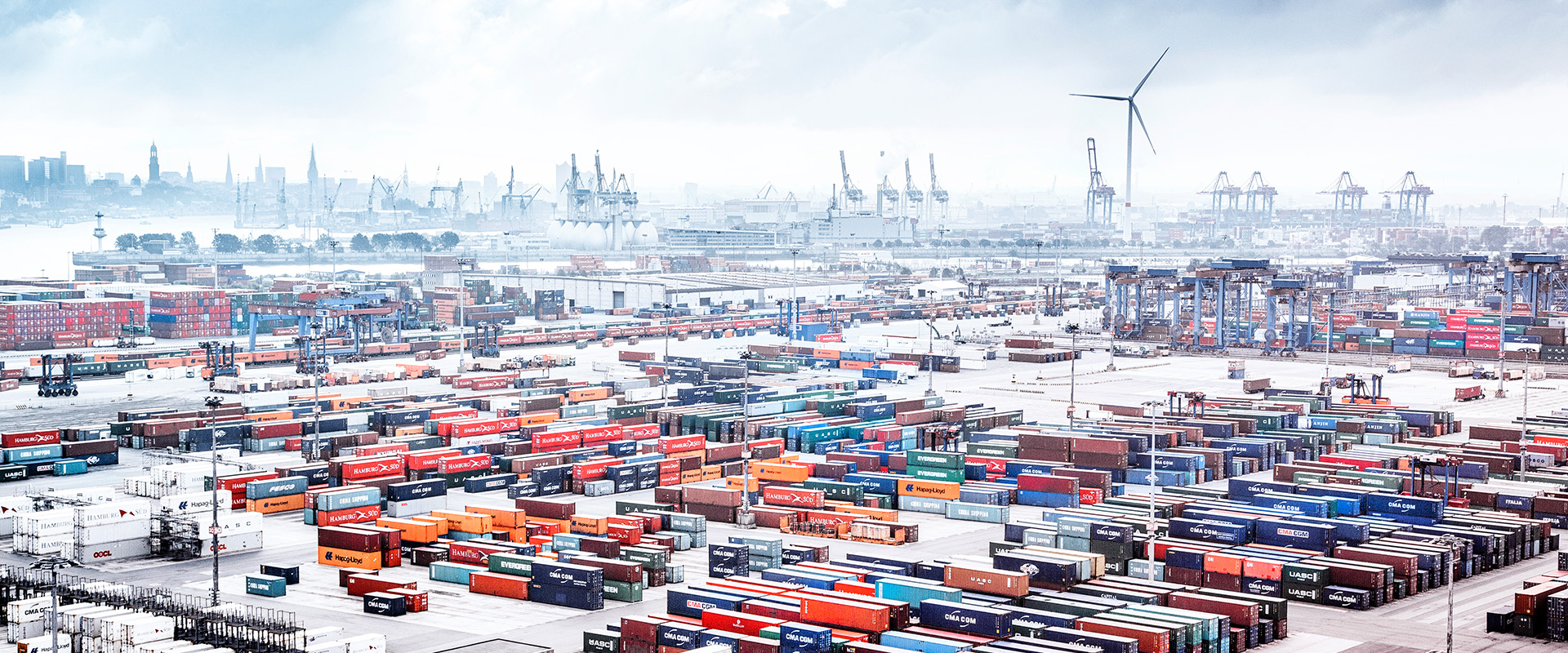In September 2015, the United Nations passed Agenda 2030. This formulated 17 goals for sustainable global development which will shape economic development while taking into account social justice and the earth’s environmental limits. Within the framework of its sustainability strategy, HHLA supports all goals that correspond to its social activities. These include in particular quality education (SDG 4), affordable and clean energy (SDG 7), decent work and economic growth (SDG 8), industry, innovation and infrastructure (SDG 9) and climate action (SDG 13).
Rail transport is considered the most environmentally advantageous mode of transport on land. By linking environmentally friendly modes of transport in Hamburg with Central and Eastern Europe, HHLA makes its most important contribution towards sustainability and protection of the environment. The linkage of ocean-going vessels with feeders, inland waterway ships, barges and rail requires nothing less than the organisation of ideal multimodal transport chains. These transport chains save energy while causing comparatively little noise and fewer accidents. Added to this is Hamburg’s location advantage deep in the hinterland, thanks to the river Elbe as an environmentally friendly transport route.
We create climate- and environmentally friendly logistics chains.
The ever-growing use of land for transport, work and residential purposes has one of the biggest impacts on the environment – not just in Germany. Impermeable surfaces can barely support natural life. Because persistent rain and downpours cannot seep into the ground, they also increase the risk of flooding. The indirect consequences are even more problematic: for example, each new container terminal built on a greenfield site requires full infrastructure links and often extends transport routes. Compact container terminals such as those operated by HHLA make particularly efficient use of the space, however, due to the highly condensed nature of the container storage areas.
We use the limited space available for port and logistics areas as efficiently as possible.
According to scientific evidence, global climate change resulting from greenhouse gas emissions is directly associated with the use of fossil fuels to generate energy. Reducing consumption both of the major fuel sources used by HHLA, diesel and electricity, and of gas and oil, supports HHLA’s economic aims.
We are reducing our CO2 emissions through energy efficiency and innovation.
Protecting the environment is more than just climate protection and land conservation. Climate and resource protection also involves additional environmental topics. These include light and noise prevention, water protection, wastewater disposal, the sparing use of raw materials, the reduction of harmful emissions of all kinds and modern waste management.
We reduce our environmental impact and protect natural resources.
One of HHLA’s greatest strengths is the high level of its employees’ skills. Vocational education and training in industrial, commercial and academic professions, as well as ongoing staff development, are extremely important to HHLA and are being continually expanded.
We invest in vocational education and training with tailored staff development programmes.
Working with heavy machinery and heavy loads in all kinds of weather round the clock and 360 days a year (there are five port holidays), the working conditions at HHLA’s terminals and facilities place high demands on every employee. And yet even repetitive office work or a multitude of personal limitations can restrict or endanger health.
We ensure safe and fair working conditions and promote health-conscious behaviour.
Social responsibility is a fixed part of the sustainability strategy, partly because social acceptance is of major importance to HHLA. As a major port and logistics company at the heart of the north German economy, HHLA is in the public eye, particularly in the greater Hamburg region. On the other hand, HHLA requires political and public support for its operations and investment programmes, as well as for the necessary expansion of infrastructure.
We engage in dialogue with the public to discuss and provide information on topics related to port logistics.
As the largest port in Germany by far, the Port of Hamburg directly and indirectly employs over 165,000 people in the Hamburg Metropolitan Region. It is one of the most important economic factors of northern Germany and, as a hub of international trade, plays an extremely important role for supply routes in Germany and Europe.
We make an ongoing and significant contribution to added value and thus increase prosperity at all locations.
The fair treatment of all business partners – whether they are customers, suppliers, investors or creditors – is a prerequisite for any company that wants to compete successfully on the market today. Compliance with sustainability standards also plays an important role for HHLA in this regard.
We offer customised solutions and work responsibly with our suppliers.
